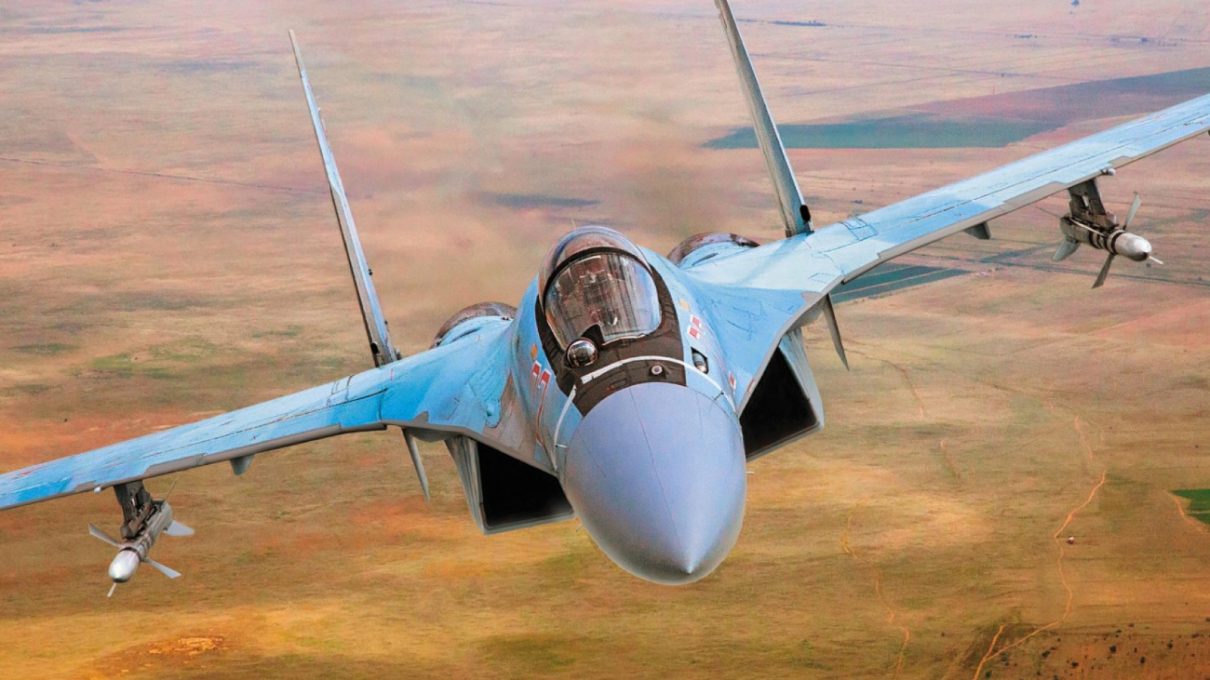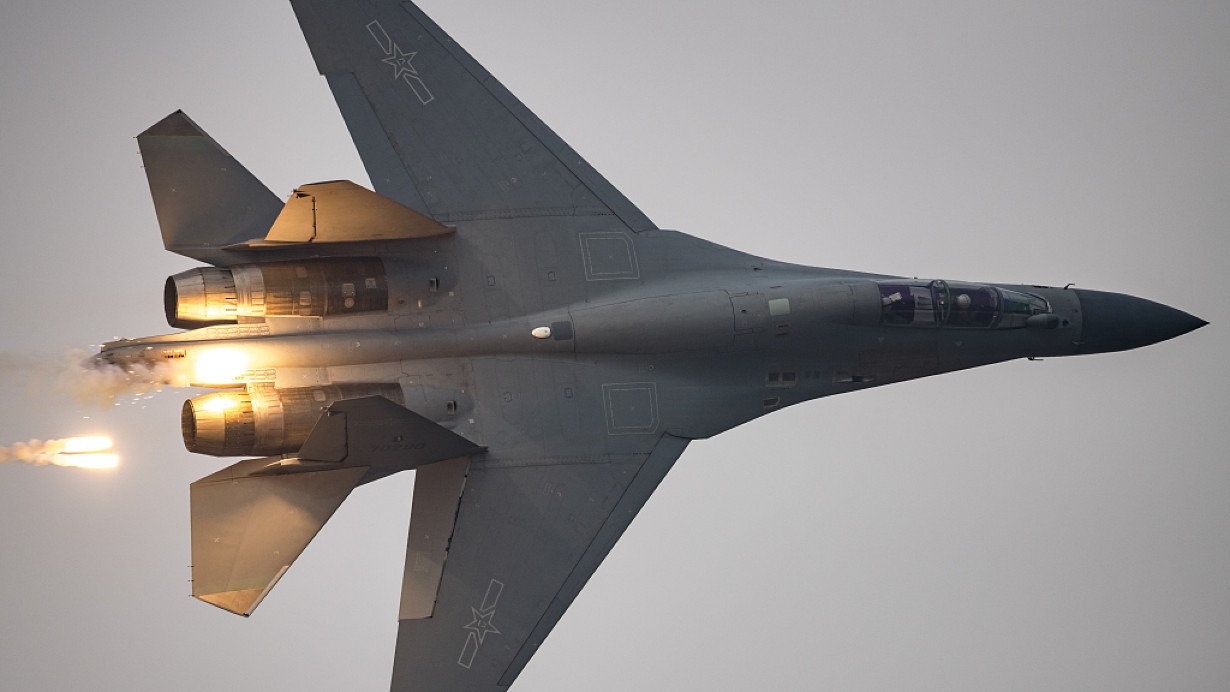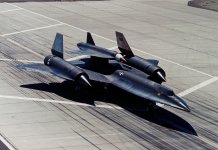A Su-35 fighter belonging to the Chinese People’s Liberation Army Air Force (PLAAF) intercepted an Australian aircraft and fired flares on its way. Interestingly, this comes after Chinese media claimed “chasing away” two F-22 Raptors.
The Australian Defense Department published an official press statement saying that a Royal Australian Air Force (RAAF) P-8A Poseidon maritime patrol aircraft experienced an “unsafe and unprofessional interaction” with a PLAAF Su-35 fighter while it was conducting a maritime surveillance patrol in the contentious South China Sea on October 19, 2025.
“The PLA-AF aircraft released flares in close proximity to the RAAF P-8A aircraft. This was an unsafe and unprofessional manoeuvre that posed a risk to the aircraft and its personnel,” the statement read. The Australian Government formally expressed its concerns to the Chinese Government following the incident.
China has innovated the use of flares beyond their conventional role as missile decoys, employing them offensively to target hostile aircraft. These flares emit high-intensity light pulses that propagate over long distances, capable of flooding pilot cockpits with blinding illumination and severely impairing vision—potentially with catastrophic consequences.
The statement, however, noted that the aircraft escaped unscathed and no injuries were reported to the Australian Defense Forces (ADF) personnel.
China is infamous for conducting dangerous interceptions of foreign military aircraft in the international air space over the South and East China Seas. Beijing claims almost the entirety of the sea as its sovereign territory and considers monitoring operations over the region as an incursion into its airspace. This position is used to defend all aggressive interceptions as actions taken to protect the Chinese sovereignty.
Responding to the Australian allegations, the spokesperson for the air force of the PLA Southern Theater Command, Senior Colonel Li Jianjian said: “An Australian P-8A aircraft intruded into China’s territorial airspace over the Xisha Qundao without the approval of the Chinese government, and the Chinese People’s Liberation Army (PLA) Southern Theater Command organized naval and air forces to track and monitor the Australian aircraft, take forceful countermeasures and warn it away in accordance with laws and regulations.”
In February 2025, J-16 fighter jet deployed flares against an Australian P-8A reconnaissance aircraft over the disputed South China Sea. Although Canberra lodged a strong protest with the Chinese government, China’s foreign ministry hit back saying that Australia “jeopardized” China’s national security and that the Chinese side had taken “proper, legal, and professional measures to exercise restraint.”
In May 2024, a PLAAF J-10 fighter jet released flares dangerously near an Royal Australian Navy’s SeaHawk helicopter when the latter was on a UN mission in international waters.
Chinese aircraft have also reportedly fired flares at Canadian, US, and Filipino military aircraft. Additionally, there have been incidents where flares were not used but the Chinese aircraft came dangerously close to a foreign aircraft, risking a collision.
For instance, Chinese J-15 fighters flew within 45 metres of the e P-3C aircraft in June 2025, as earlier reported by the EurAsian Times.

China Chases Away F-22 Raptor?
A PLA Air Force (PLAAF) pilot from the special mission aircraft formation claimed on a documentary shown by state broadcater CCTV that he simultaneously locked two foreign stealth fighter jets while flying the domestically developed J-16 fighter jet, forcing both jets to withdraw.
This was reported by state-owned Global Times earlier this month. The incident took place at an unspecified date last year.
While the report did not name a foreign stealth aircraft, the only two aircraft that fit the description are the American-origin F-22 Raptor and the F-35 Lightning II, both frequently dispatched to the Indo-Pacific region for training, war exercises, and regular deployments.
The F-22 Raptor has been deployed at various locations, including Kadena AB (Okinawa, Japan), Osan AB (South Korea), Andersen AFB (Guam), Kunsan AB (South Korea), and in the Philippines, at different times. Meanwhile, the F-35 Lightning II has been deployed in Japan, South Korea, Guam, and the Indo-Pacific theatre command.
“They headed straight toward our two aircraft. Their intention was very clear—it was a provocation. With our backs to the territorial sea line, we had to intercept them,” recalled Li, who was flying the J-16 in question.
The pilot claimed that he locked onto the foreign fighter jet in the first encounter, causing the affected aircraft’s wingman to immediately break away at high speed. Seizing the opportunity, Li pulled up his aircraft and executed a barrel roll, flying inverted directly above the foreign jet. “At that moment, my canopy was just 10 to 15 meters away from his. After completing this maneuver, I simultaneously locked onto both foreign fighter jets. In the end, both aircraft withdrew,” Li said.
The CCTV report said the confrontation was the only one of its kind to date. “Since that encounter, this type of fighter jet has never appeared near China’s coastal waters.”
Song Zhongping, a military commentator and former PLA instructor, said he believed the foreign warplanes were F-22s.
“Based on the report, the J-16 and the F-22s were within visual range, meaning that the F-22s were conducting close reconnaissance against China,” he was quoted as saying by South China Morning Post.

“This demonstrates that the J-16, when operating within an integrated combat capability, can effectively identify and expel stealth fighters. “China now possesses the capability to effectively safeguard its air defence identification zone using its existing range of fighter aircraft.”
The J-16 is a workhorse of the PLA Air Force, and is expected to work alongside the J-20 stealth fighter and the J-10C.
There have been multiple reports of a potential interception of American fighter jets. In July this year, media reports suggested that the Chinese J-20 Mighty Dragon stealth fighter was reported to have expelled a foreign aircraft, most likely the F-35, after several rounds of fierce attack and defense.
In fact, some state-owned outlets went so far as to say that this was the second such encounter between the two stealth fighters.
- Contact the author at sakshi.tiwari13 (at) outlook.com
- Follow EurAsian Times on Google News




